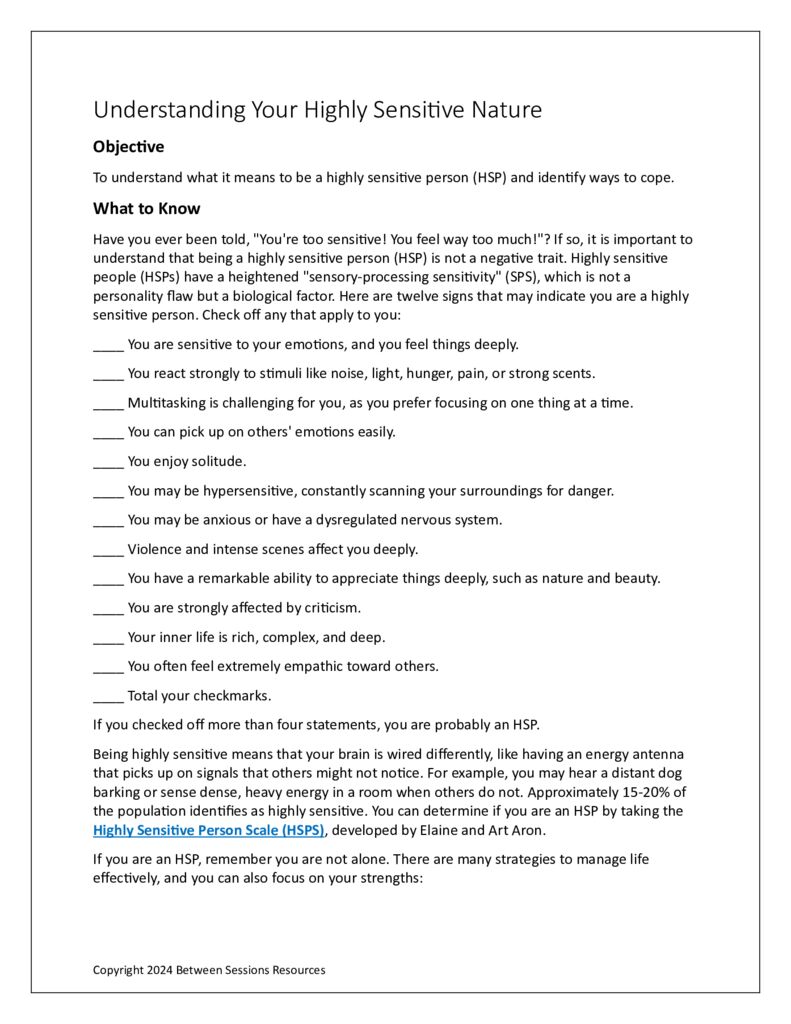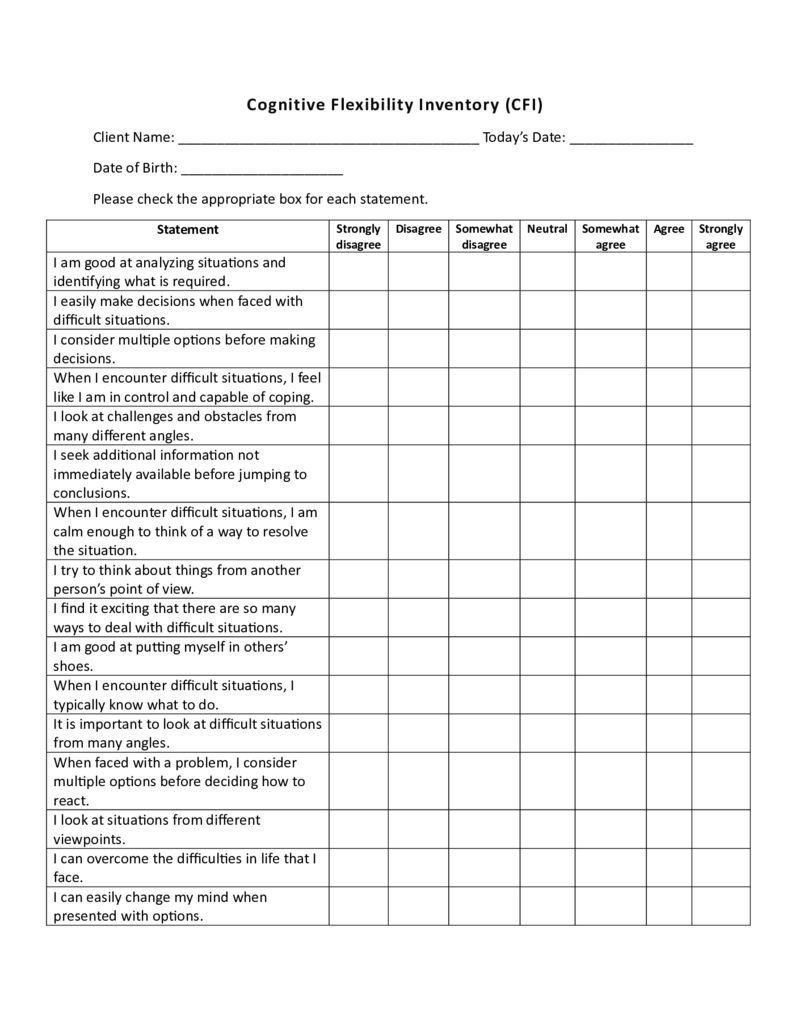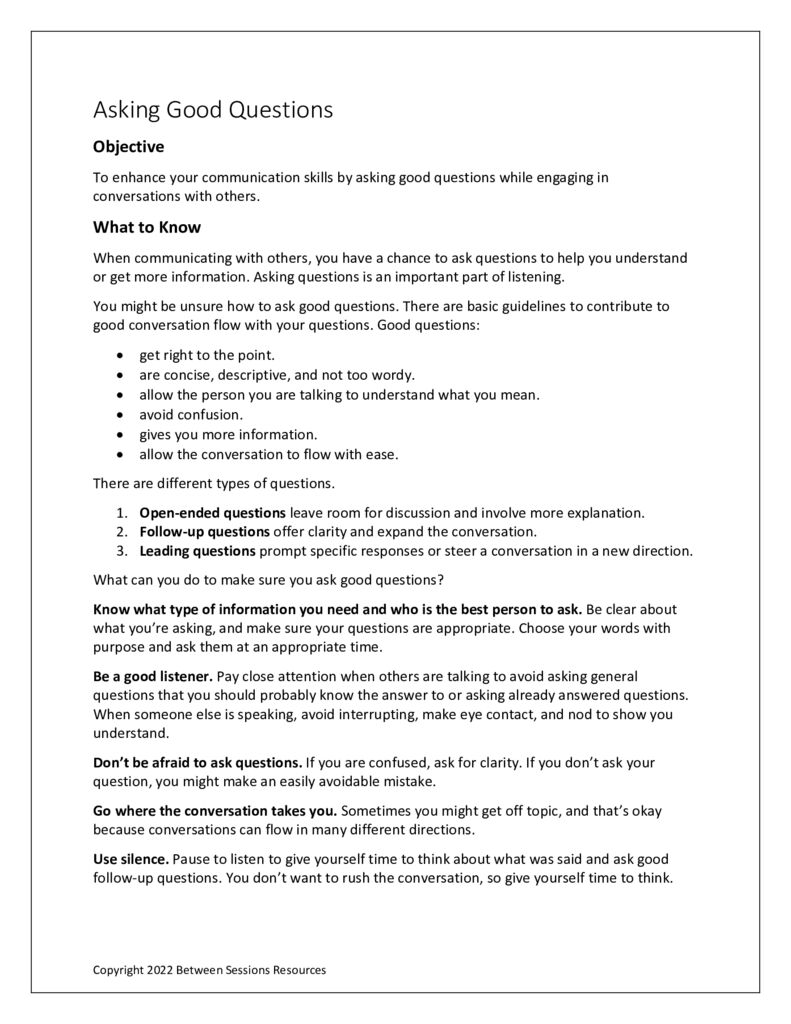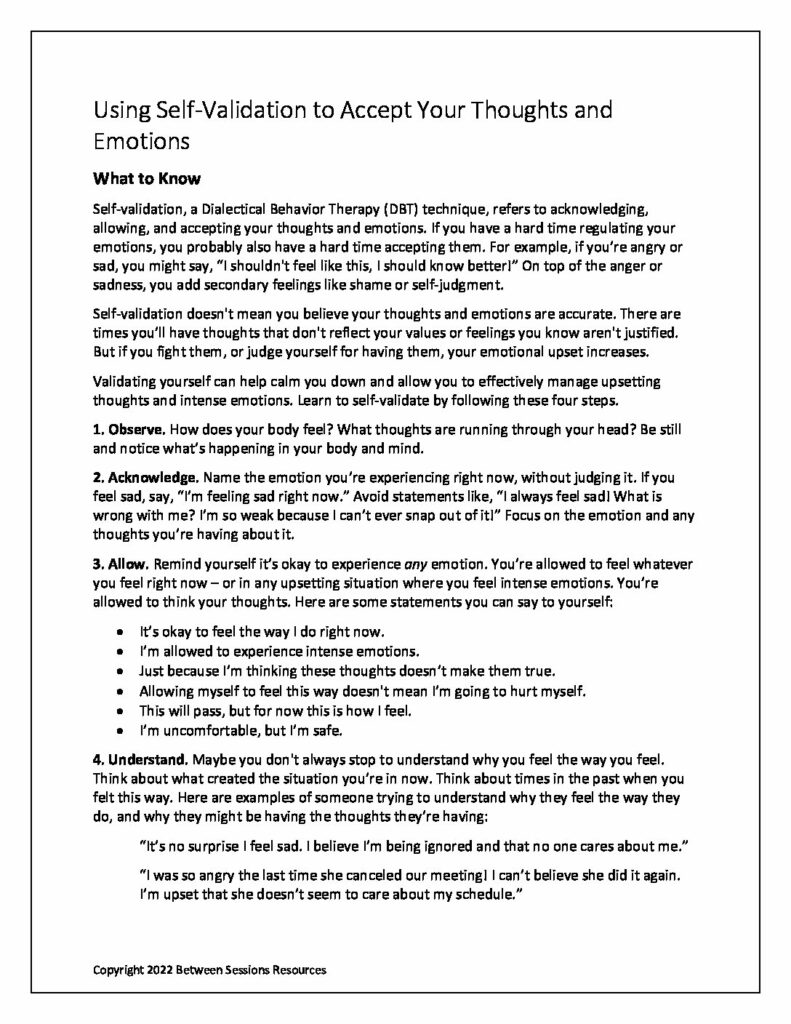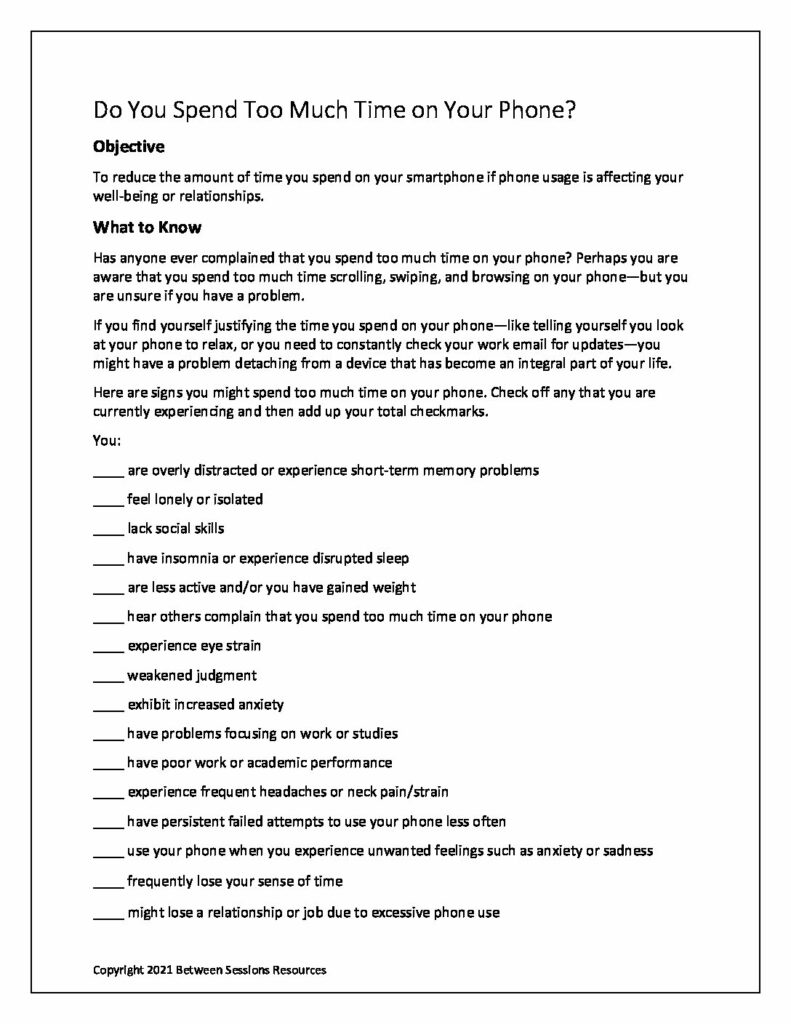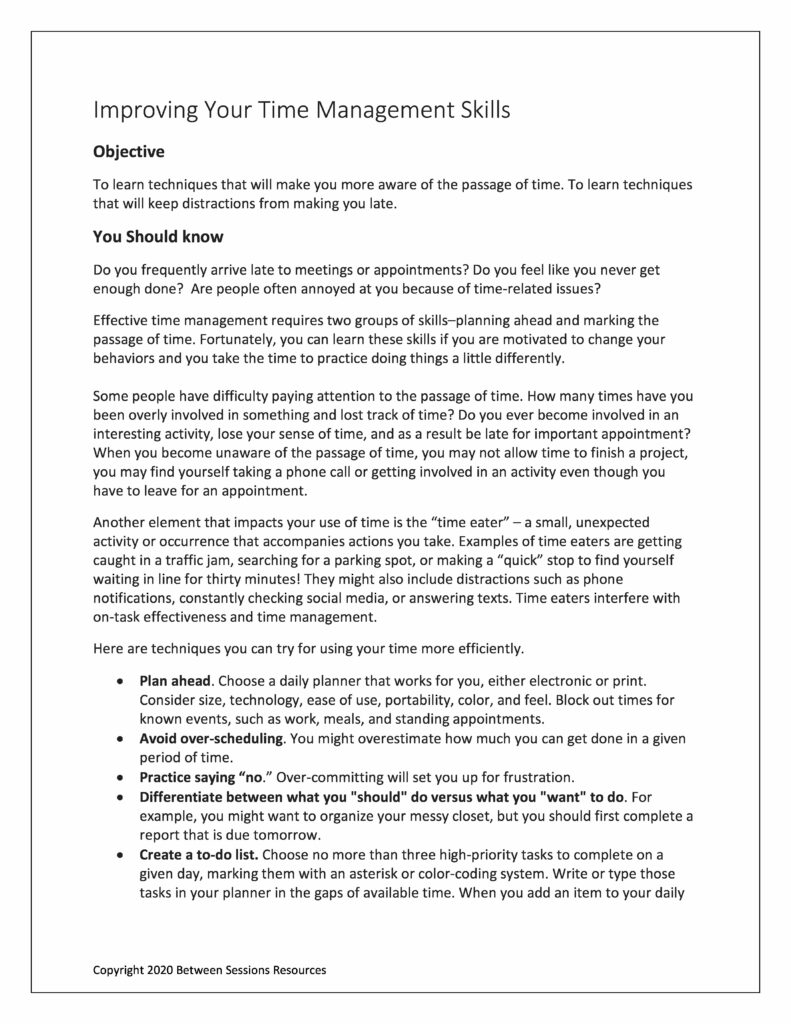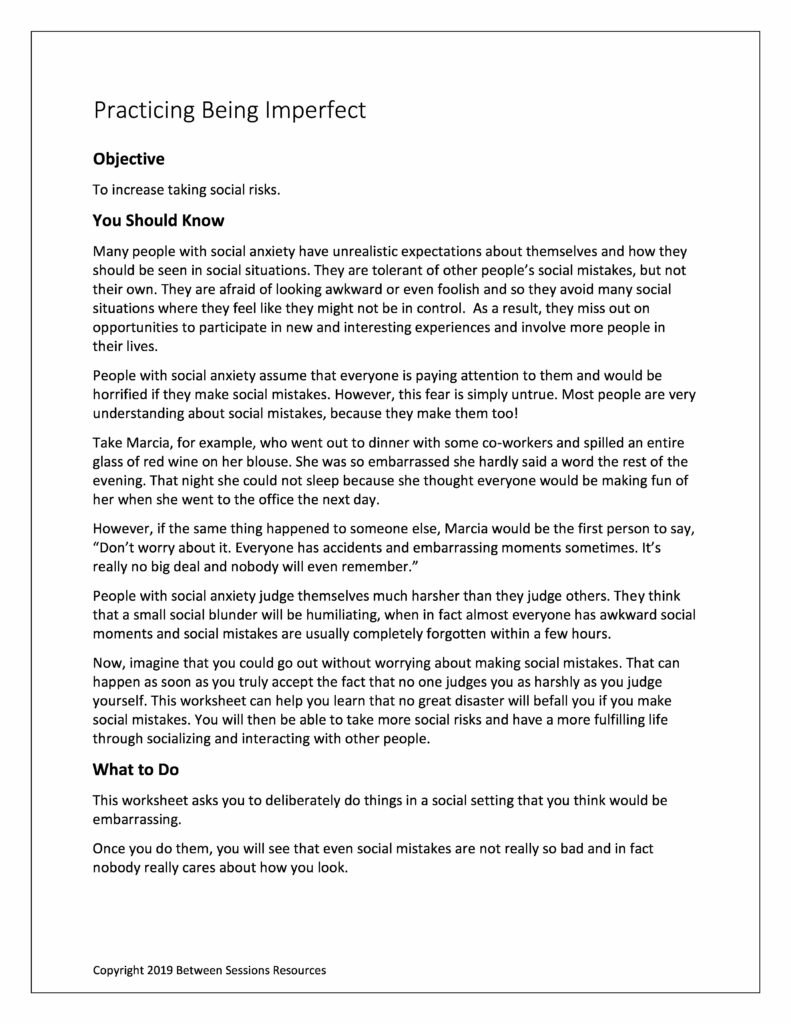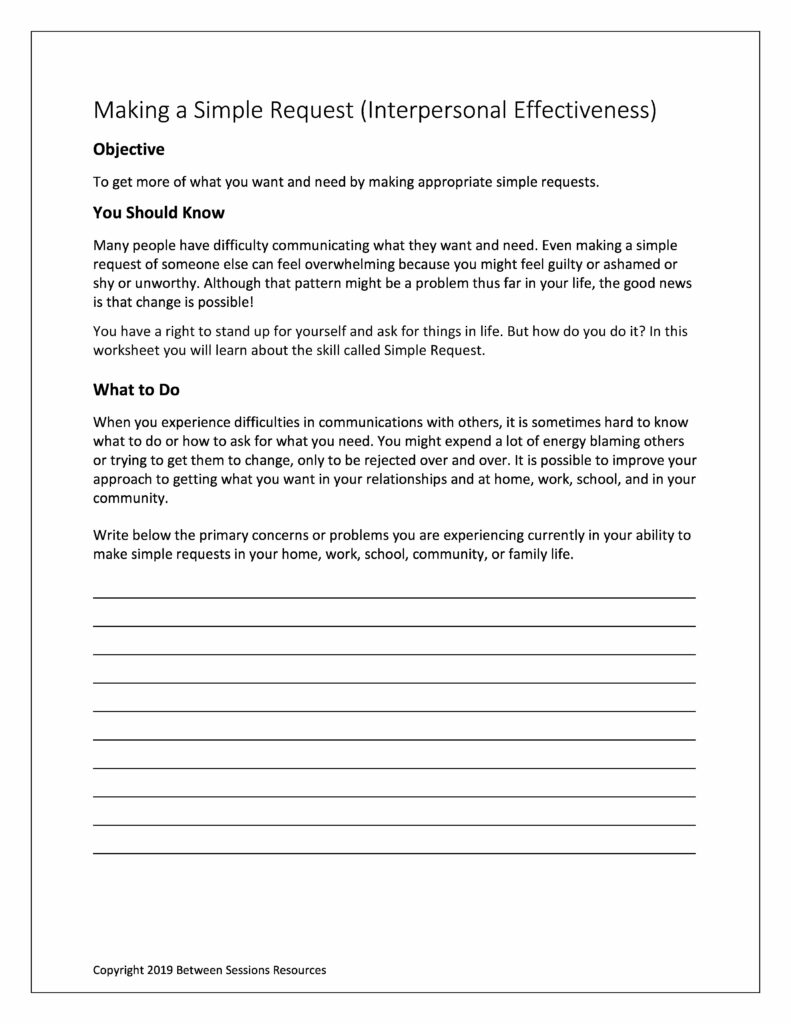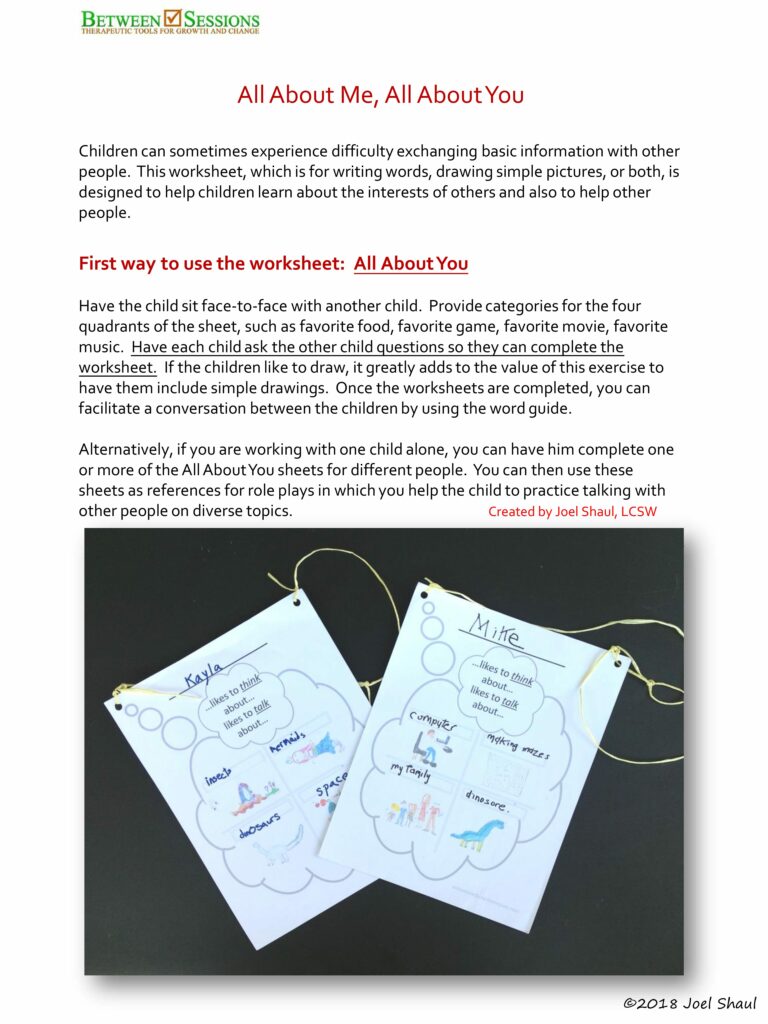Highly sensitive people (HSPs) have a heightened “sensory-processing sensitivity” (SPS), which is not a personality flaw but a biological factor. This worksheet includes a checklist to help people identify if they have this type of sensitivity and suggests exercises to help people understand themselves better. (0124. sensory processing, senses)
The Cognitive Flexibility Inventory (CFI) is a self-report measure to monitor how often individuals engage in cognitive behavioral thought-challenging interventions. Cognitive flexibility enables people to think adaptively when encountering stressful life events, and it is a core skill that helps them avoid becoming stuck in maladaptive thinking patterns. (0423, assessment, cognitive flexibility, executive functioning)
This worksheet deals with the type of communication many people take for granted-asking good questions. The Worksheet review the 3 basic types of questions and 10 points on how to ask good questions that move a conversation forward and make it interesting for another person. (0620, social skills, conversational skills, communication)
This worksheet helps people understand the DBT concept of self-validation, acknowledging, allowing, and accepting your thoughts and emotions. The 4 steps of self-validation are: Observe, Acknowledge, Allow and Understand. A chart helps people practice these four important steps. (0122, DBT, self-acceptance)
This worksheet describes the “symptoms” of phone addiction. It provides a checklist of behaviors that might indicate a problem. It also eight suggests on how to become less dependent on a phone if it is interfering with other aspects of your life. A chart is provided to help people develop a plan to decrease their phone dependence. (1221, phone addiction, addiction, relationships)
This worksheet helps people with time management problems become more aware of the passage of time and the distractions that can become “time-eaters.” It gives specific techniques to use to help people plan their time more effectively. (ADHD, ASD, time management, 0620)
This worksheet is designed to help people take more social risks. Many people with social anxiety dread that they will embarrass themselves in public. This worksheet asks them to choose three situations where they deliberately make a social mistake in order to see that others really don’t care. (social anxiety, shyness, thought distortion, exposure therapy, 0520)
This worksheet is designed to help people get more of what they need learning how to make appropriate simple requests. This a DBT technique intended to help people develop their personal effectiveness. (DBT, assertiveness, 0419)
This activity is designed to help children learn about other children. It teaches the most basic empathy skill, showing interest in others. (social skills, Asperger Syndrome, 0219)
This worksheet is designed to help people identify situations where excessive talking may be affecting their relationships and to help them learn conversational signals that can aid in more appropriate give and take conversations. (ADHD, Asperger Syndrome, relationships, social skills, 0219)

